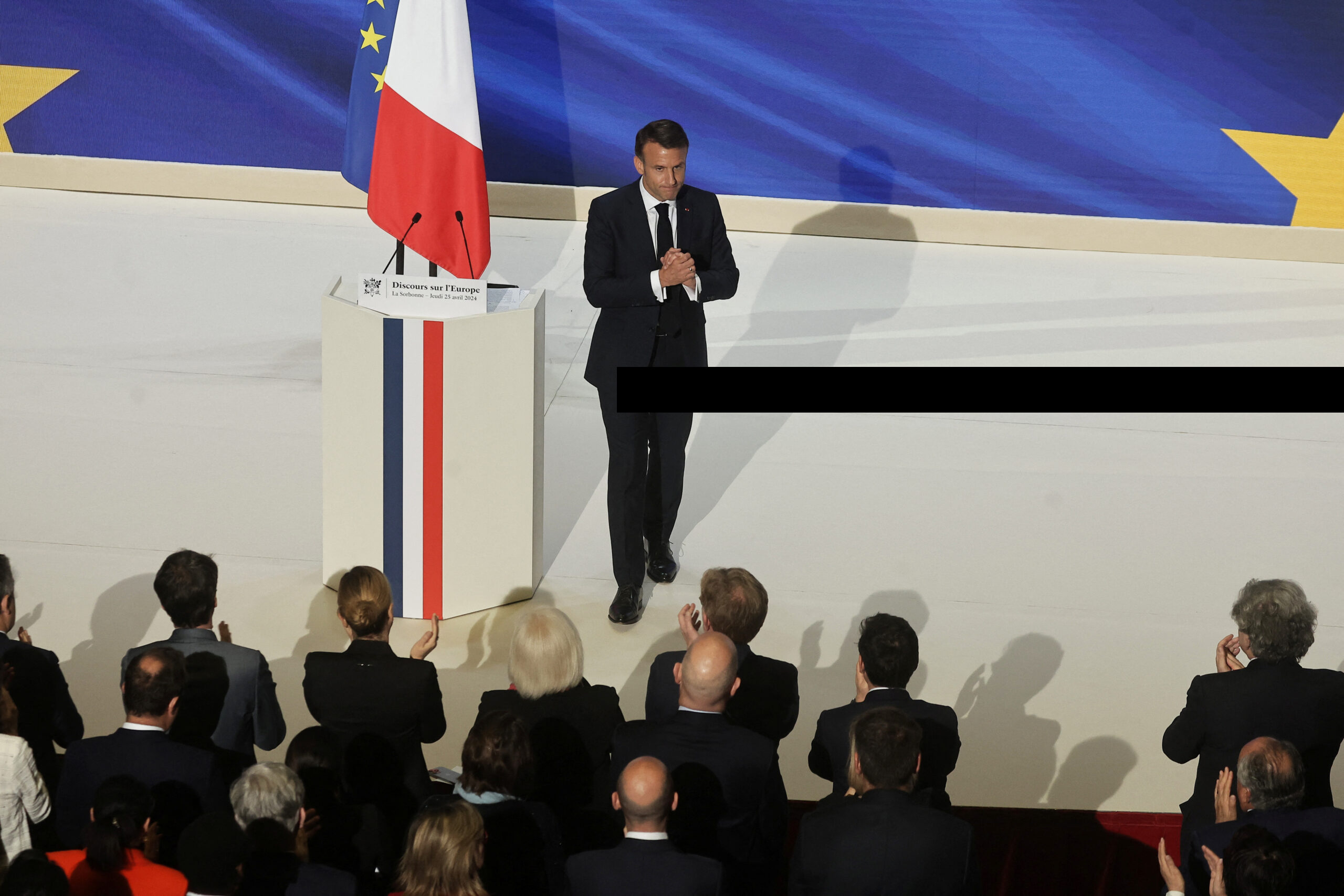President Macron has warned that Europe “could die” should the 27-nation bloc not face its challenges head on. In a speech at the Sorbonne University in Paris, the French president argued Europe needed stronger more integrated defences to ensure that it did not become a vassal of the US.
“There is a risk our Europe could die. We are not equipped to face the risks,” Macron said in his speech, warning that military, economic, trade and other pressures could weaken and fragment the 27-nation EU.
Thursday’s speech was billed by Macron’s advisers as France’s contribution to the EU’s strategic agenda for the next five years. The agenda is due to be decided after the European elections to be held from June 6-9, when EU leaders will haggle over the bloc’s top jobs.
Macron who had controversially stated in February this year that sending Nato soldiers to fight in Ukraine should not be “ruled out” restated in his speech that Russia could not be allowed to prevail in the ongoing conflict. He added that Europe needed to fortify itself through a boost in its cybersecurity capacity, closer defence ties with post-Brexit Britain, and the creation of a European academy to train high-ranking military personnel.
“There is no defence without a defence industry … we’ve had decades of under-investment,” he said, adding that Europeans should give preference to buying European military equipment.
“We must produce more, we must produce faster, and we must produce as Europeans,” he said.
With just three years left of his second and final term in office, and having lost his parliamentary majority in 2022, Macron, 46, wants to show his critics that he retains the energy and fresh thinking that helped propel him into the presidency in 2017 and that he has not become a lame duck leader.
The French leader hopes his speech will have the same impact as a similar address at the Sorbonne he made seven years ago that prefigured some significant EU policy shifts. Since then, much has changed, with major geopolitical challenges including the war in Gaza, Russia’s invasion of Ukraine and growing China-U.S. tensions. Macron has seen his personal popularity tumble, while his centrist Renaissance party is trailing the far-right Rassemblement National (RN) in polls ahead of the European Parliament elections.
(Edited by Ashwin Ahmad)
















